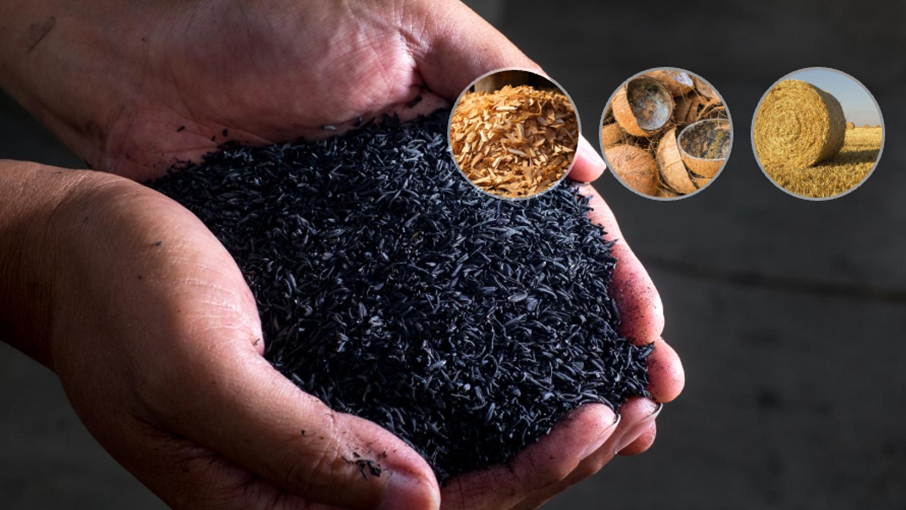Biochar has gained increasing attention in sustainable agriculture due to its remarkable ability to improve soil health and crop yield. Derived from organic biomass through pyrolysis, biochar is a stable form of carbon that can remain in the soil for hundreds of years. Its porous structure and high surface area offer numerous advantages for farming. Below, we explore the top five benefits of using biochar in agriculture.

1. Enhanced Soil Fertility and Structure
Biochar improves soil fertility by increasing its capacity to retain essential nutrients such as nitrogen, potassium, and phosphorus. Its highly porous nature also helps to aerate compacted soils and improve water retention. This is particularly valuable for sandy soils that struggle with nutrient leaching. Farmers who integrate biochar into their fields notice improved plant growth and healthier crops.
To produce high-quality biochar for soil enrichment, modern technology like a biochar production machine can be used. This equipment ensures consistent quality and efficient carbonization of biomass materials.
2. Improved Water Retention and Drought Resistance
Water scarcity is a significant challenge for agriculture, especially in arid and semi-arid regions. Biochar acts as a sponge in the soil, holding moisture that would otherwise drain away. This property is especially beneficial during dry periods, reducing the need for frequent irrigation.
Studies have shown that fields treated with biochar maintain soil moisture for longer periods. Additionally, biochar enhances the soil’s water-holding capacity without causing waterlogging, making it ideal for both dry and humid climates.
3. Carbon Sequestration and Climate Change Mitigation
In the face of climate change, biochar offers a dual benefit: it improves agricultural productivity while serving as a carbon sink. When biomass is converted into biochar instead of being burned or left to decompose, carbon that would otherwise be released as CO₂ is locked into the soil.
This long-term carbon sequestration can significantly reduce greenhouse gas emissions. By utilizing a charcoal carbonization machine, agricultural producers can process various biomass sources, such as crop residues and wood waste, into valuable biochar while contributing to a more sustainable environment.

4. Enhanced Microbial Activity and Soil Life
Healthy soils rely on a thriving community of microorganisms. Biochar creates an ideal habitat for beneficial microbes, such as nitrogen-fixing bacteria and mycorrhizal fungi. Its porous matrix provides shelter and surfaces for microbial colonization, leading to enhanced nutrient cycling and soil fertility.
The presence of biochar in the soil fosters biodiversity at the microbial level, which is critical for plant health and productivity. This effect also reduces the need for chemical fertilizers, lowering costs and environmental impact for farmers.
5. Waste Management and Circular Agriculture
Biochar production presents an excellent opportunity to convert agricultural and organic waste into a valuable soil amendment. Materials such as rice husks, coconut shells, and wood chips can be effectively recycled using a wood charcoal machine.
This process not only reduces the volume of agricultural waste but also returns nutrients to the soil in a stable, beneficial form. Embracing biochar as part of a circular agricultural system helps create a more sustainable and environmentally friendly farming model.

Conclusion
Biochar is a powerful tool for modern agriculture, offering a wide range of benefits from improving soil structure to mitigating climate change. As farmers and agricultural enterprises strive to meet the growing demand for food while preserving natural resources, integrating biochar into farming practices becomes an attractive solution. By using innovative biochar pyroysis technology, stakeholders in the agricultural industry can harness the full potential of biochar and move towards a greener, more productive future. Learn more at Beston Group.

